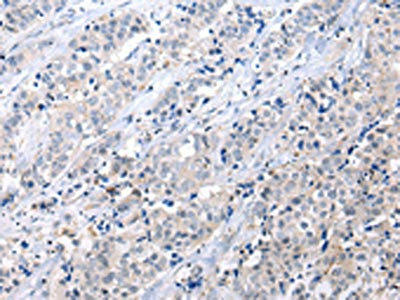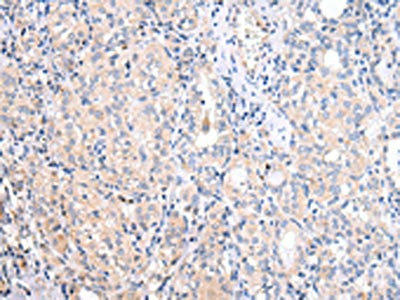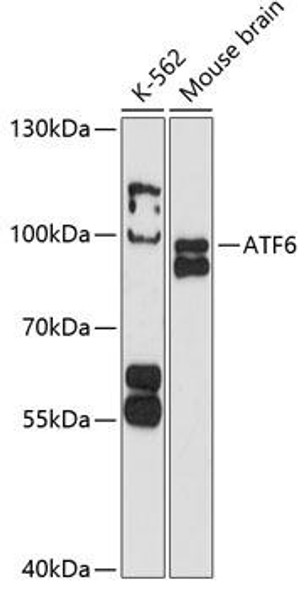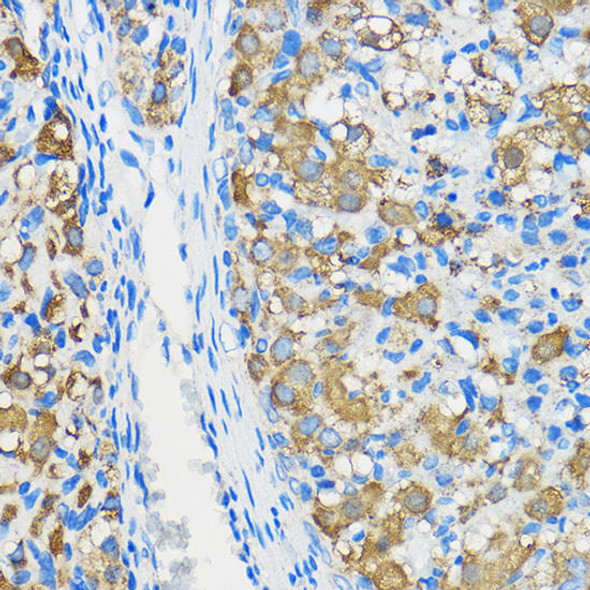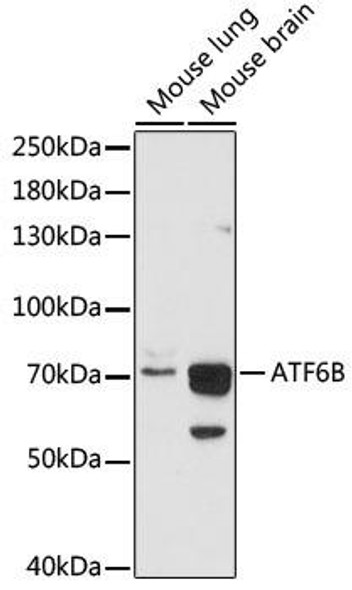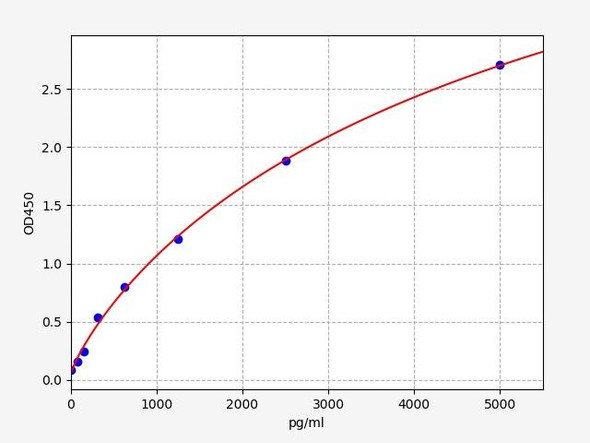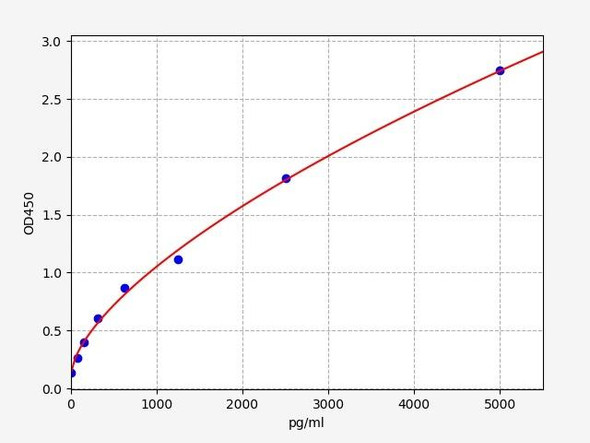| UniProt Protein Function: | ATF6A: Transcription factor that acts during endoplasmic reticulum stress by activating unfolded protein response target genes. Binds DNA on the 5'-CCAC[GA]-3'half of the ER stress response element (ERSE) (5'-CCAAT-N(9)-CCAC[GA]-3') and of ERSE II (5'-ATTGG-N-CCACG-3'). Binding to ERSE requires binding of NF-Y to ERSE. Could also be involved in activation of transcription by the serum response factor. Belongs to the bZIP family. ATF subfamily. |
| UniProt Protein Details: | Protein type:Transcription factor; Membrane protein, integral Chromosomal Location of Human Ortholog: 1q23.3 Cellular Component: endoplasmic reticulum; endoplasmic reticulum membrane; Golgi apparatus; Golgi membrane; integral to endoplasmic reticulum membrane; membrane; nuclear envelope; nucleoplasm; nucleus Molecular Function:identical protein binding; protein binding; protein heterodimerization activity; transcription coactivator activity; transcription factor activity Biological Process: eye development; positive regulation of transcription of target genes involved in unfolded protein response; protein folding; regulation of transcription from RNA polymerase II promoter; response to stress; signal transduction; unfolded protein response; visual perception Disease: Achromatopsia 7 |
| NCBI Summary: | This gene encodes a transcription factor that activates target genes for the unfolded protein response (UPR) during endoplasmic reticulum (ER) stress. Although it is a transcription factor, this protein is unusual in that it is synthesized as a transmembrane protein that is embedded in the ER. It functions as an ER stress sensor/transducer, and following ER stress-induced proteolysis, it functions as a nuclear transcription factor via a cis-acting ER stress response element (ERSE) that is present in the promoters of genes encoding ER chaperones. This protein has been identified as a survival factor for quiescent but not proliferative squamous carcinoma cells. There have been conflicting reports about the association of polymorphisms in this gene with diabetes in different populations, but another polymorphism has been associated with increased plasma cholesterol levels. This gene is also thought to be a potential therapeutic target for cystic fibrosis. [provided by RefSeq, Aug 2011] |
| UniProt Code: | P18850 |
| NCBI GenInfo Identifier: | 66774203 |
| NCBI Gene ID: | 22926 |
| NCBI Accession: | P18850.3 |
| UniProt Secondary Accession: | P18850,O15139, Q5VW62, Q6IPB5, Q9UEC9, |
| UniProt Related Accession: | P18850 |
| Molecular Weight: | 74,585 Da |
| NCBI Full Name: | Cyclic AMP-dependent transcription factor ATF-6 alpha |
| NCBI Synonym Full Names: | activating transcription factor 6 |
| NCBI Official Symbol: | ATF6 |
| NCBI Official Synonym Symbols: | ACHM7; ATF6A |
| NCBI Protein Information: | cyclic AMP-dependent transcription factor ATF-6 alpha |
| UniProt Protein Name: | Cyclic AMP-dependent transcription factor ATF-6 alpha |
| UniProt Synonym Protein Names: | Activating transcription factor 6 alpha; ATF6-alpha |
| Protein Family: | Cyclic AMP-dependent transcription factor |
| UniProt Gene Name: | ATF6 |
| UniProt Entry Name: | ATF6A_HUMAN |
